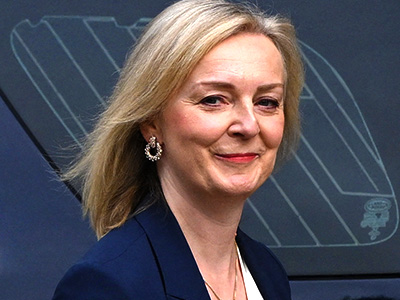It’s easy to laugh at Liz Truss bringing out a book, much harder to ask whether there are points she makes that Westminster can actually learn from. The former prime minister obviously has a self-awareness problem which leads her to blame her failures on anyone and everyone who happened to be around at the time.
Already a subscriber? Log in
Subscribe for just $2 a week
Try a month of The Spectator Australia absolutely free and without commitment. Not only that but – if you choose to continue – you’ll pay just $2 a week for your first year.
- Unlimited access to spectator.com.au and app
- The weekly edition on the Spectator Australia app
- Spectator podcasts and newsletters
- Full access to spectator.co.uk
Or





















Comments
Don't miss out
Join the conversation with other Spectator Australia readers. Subscribe to leave a comment.
SUBSCRIBEAlready a subscriber? Log in